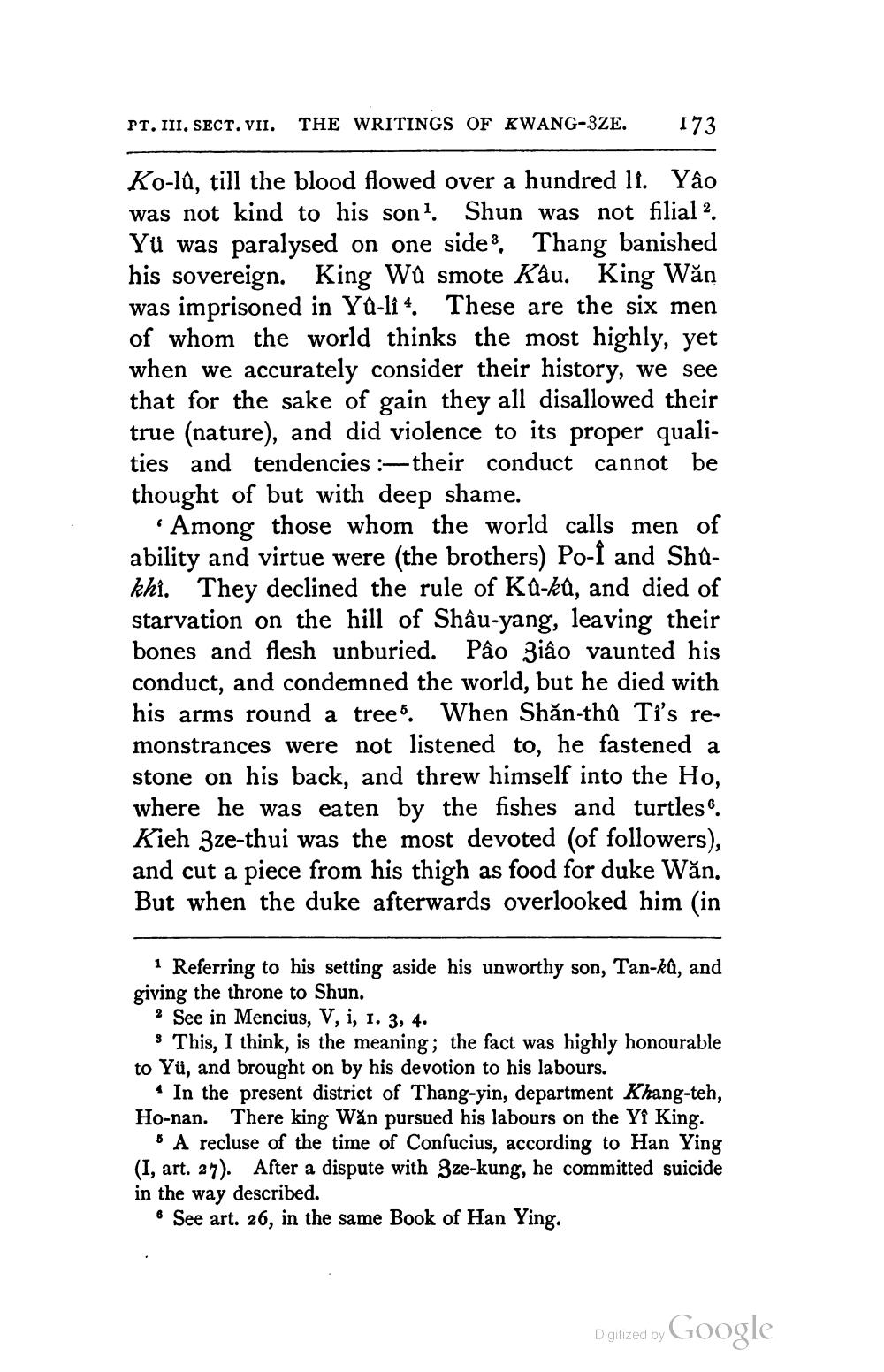________________
PT. III. SECT. VII. THE WRITINGS OF KWANG-SZE.
173
Ko-lû, till the blood flowed over a hundred 11. Yão was not kind to his son'. Shun was not filial 2. Yü was paralysed on one side 3, Thang banished his sovereign. King Wů smote Kâu. King Wăn was imprisoned in Yd-li 4. These are the six men of whom the world thinks the most highly, yet when we accurately consider their history, we see that for the sake of gain they all disallowed their true (nature), and did violence to its proper qualities and tendencies their conduct cannot be thought of but with deep shame.
Among those whom the world calls men of ability and virtue were (the brothers) Po-I and Shukhi. They declined the rule of Ka-ka, and died of starvation on the hill of Shâu-yang, leaving their bones and flesh unburied. Pâo Ziâo vaunted his conduct, and condemned the world, but he died with his arms round a tree. When Shăn-thù Tis remonstrances were not listened to, he fastened a stone on his back, and threw himself into the Ho, where he was eaten by the fishes and turtles. Kieh Zze-thui was the most devoted (of followers), and cut a piece from his thigh as food for duke Wăn. But when the duke afterwards overlooked him (in
1 Referring to his setting aside his unworthy son, Tan-kû, and giving the throne to Shun.
? See in Mencius, V, i, 1. 3, 4.
$ This, I think, is the meaning; the fact was highly honourable to Yü, and brought on by his devotion to his labours.
In the present district of Thang-yin, department Khang-teh, Ho-nan. There king Wăn pursued his labours on the Yi King.
A recluse of the time of Confucius, according to Han Ying (I, art. 27). After a dispute with Sze-kung, he committed suicide in the way described.
See art. 26, in the same Book of Han Ying.
Digitized by Google




